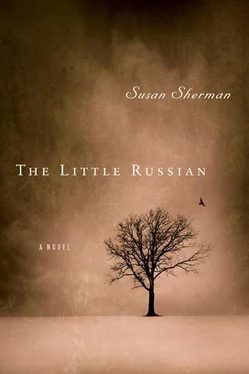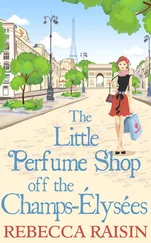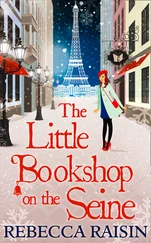“I think I can manage. I’m usually pretty good at that sort of thing.” He didn’t look the least bit concerned.
Berta knew it would be this arrogance that would prompt her mother to send him packing. She would see his swagger, cheeky grin, and charming manner as a direct assault on the good name of her daughters. She thought about warning him, but she knew it would do no good. She had learned that about him over the summer months. He would do it his way, no matter what anybody said.
That night, supper was served at the table in the front room. Tateh had just returned from evening prayers and had taken the time to comb his hair with water and put on his good Shabbes coat. It still had a torn piece of cloth affixed to the lapel from the last funeral he had attended, the wife of the cattle dealer who had died of a woman problem. He sat at the head of the table when Hershel came in and greeted his guest with a stiff formality. “You’re over here, Reb Alshonsky,” he said, indicating the chair next to him.
Hershel nodded and took his seat across from Lhaye. She was wearing one of Berta’s Moscow dresses. It was a midnight blue satin with bugle beading and lace sleeves, much too fancy for a simple meal at home. She also took the time to pile her hair on top of her head and even added an ostrich feather that she found at the bottom of the trunk. Hershel complimented her on her appearance and she thanked him, the feather bobbing with determination as she lowered her head and blushed.
Mameh made no special effort for her guest. She wore her old apron at the table and kept the lace runner that she used for holy days in the drawer. Instead she used the everyday tablecloth that was stained and yellowed and torn in two places.
At first there was an uncomfortable silence lasting through the blessing, which of course was proper, but also through much of the bread and soup.
“It’s very good, Froy Lorkis,” Hershel said, finishing up his bowl.
She gave him a tight-lipped smile, rose, and gathered up the bowls. “Berta, help me in the kitchen.”
Berta and Hershel exchanged a look as she reached for the soup pot.
“Do you have to be so rude to him, Mameh? It’s embarrassing,” she whispered, after carrying the pot into the kitchen and setting it down on the counter. “Can’t you say something nice? Ask about his health? Anything… ?”
Mameh was at the stove scooping out the last of the boiled potatoes into a bowl with a rusty slotted spoon. “It is not enough that we have a mazzik staying with us? I have to make nice to him too?” She made no effort to keep her voice down. She reached into the salt box and took a pinch between her thumb and forefinger and sprinkled it over the potatoes. As an afterthought she took another pinch and dropped it into the pocket of Berta’s apron.
“Oh, Mameh,” she said with annoyance.
“Hush now. I know what I’m doing. And take this.” She took off an amulet from around her neck and put it around Berta’s. “Keep it on and don’t take it off, no matter what anybody says.”
Berta examined the amulet. It was the ugliest thing she had ever seen. “What do you think he’s going to do to us?”
“Just wear it. Tateh has invited a demon into our house. So you will excuse me if I take a little precaution.”
Berta gave her mother a look, picked up the bowl of potatoes, and carried it out to the front room. Mameh came out a few minutes later with the fish, and the meal continued on in silence.
“So where are you off to?” Tateh asked, seemingly unaware of the tension in the room.
“To Chewnyk’s and Kedzierski’s,” Hershel replied. “I thought I’d pick up a load or two if the price is right.”
Tateh knew these families. They came into town for supplies. They had large farmsteads to the west of Mosny with many desyatins in cultivation. “I would also try Babzak,” he said. “They say he uses the scientific approach . He already paid off his debt, so he must have done well. Of course, he is always bragging about this so-called approach. But if you can stand to listen to him, I’d give him a try.”
“Thank you, I will.”
Tateh helped himself to a piece of fish and passed the platter to Lhaye, who eyed it suspiciously and passed it on. She didn’t like fish. “Will you be back tomorrow?” she asked, helping herself to the potatoes.
“No, I go on to Bogitslav.”
Tateh’s jaw clicked as he chewed. “I have a cousin in Bogitslav,” he said between bites, “maybe you have heard of him, Mottel Royzen?”
Hershel thought for a moment. “I know a Zevi Royzen from Medvin.”
Tateh considered this and shook his head. “No, never heard of him.”
“Still, tragic story, Zevi Royzen,” said Hershel, carefully removing the skin from his sturgeon before sticking a fork into the white flesh.
Mameh kept her eyes on her plate.
“What happened?” asked Lhaye.
“Excuse me?”
“To Zevi Royzen. What’s the tragic story?”
“Oh, very sad. His wife died. Beautiful woman and a fine housekeeper. A real balebosteh , they say.”
“How did she die?”
“She was cleaning a chicken and she cut her finger on the neck bone. It was nothing, a little cut, some blood, nothing to fuss about. But then the finger turned all red and her hand blew up like a balloon and she started to run a high fever. Her husband called in the best doctors, a whole team of them, but it was too late. Three days later she was dead.”
Mameh looked up.
“Just like that?” asked Lhaye.
“Just like that. And that’s not the worst of it. He remarried. The daughter of a rope spinner, so of course there was no dowry. Not that he cared. He was a rich man. Well, not rich exactly, but he had money, could go out for a meal once in a while and take in a play. He made fine saddles and sold them to people who could afford them. Anyway, as marriages go, this one was a disaster.” He stabbed a potato with his fork and stuck it into his mouth.
“How come?” Lhaye asked.
Hershel chewed, swallowed, and shook his head. “Not such a nice story. You don’t want to know.”
“But I do,” she said, her feather bobbing emphatically.
Tateh said irritably, “What difference does it make? He’s not my cousin. We don’t know him. I’m sorry for his troubles, but it’s got nothing to do with us.”
“But I want to know, Tateh.”
“Go on, Reb Alshonsky. It’s all right. We’re all grown-ups here,” said Berta.
Mameh poured herself another glass of wine and glanced briefly at him from over the rim.
“Well,” Hershel continued a little doubtfully, “Let’s just say that a young girl gets ideas in her head. Maybe she starts to think she doesn’t want to be with such an old man. Maybe her eyes wander over the fence where the grass is greener. Maybe they linger a little too long on the glazer’s son.” His voice trailed off and they sat there in silence, mulling over the implications.
After dinner they moved across the room to the settee and chairs. Hershel declined Tateh’s offer of the wing chair and pulled over one of the chairs from the table. “You know a Rabbi Liebermann from Dunivits?” he asked his host, once they were all settled.
“I think I’ve heard of him. Is he famous?”
“A little famous.” His eyes flicked over to Mameh, who was mending one of Tateh’s shirts. There was a rust-colored rip on the sleeve as if stained by old blood. “So you haven’t heard about his son?”
“I didn’t know he had a son.”
“Oh yes, he had a good son. A promising scholar they say, until the trouble started. All out of the blue like that. Without warning. Shocked everybody. No one could understand how one day he could be himself, a good, obedient boy, and the next… disrespectful to his mother, shouting out obscenities in shul. And you have to remember this was from a boy who never did anything wrong in his whole life.”
Читать дальше












